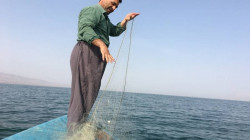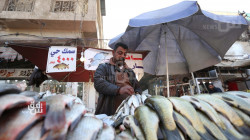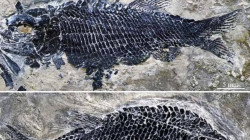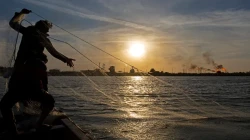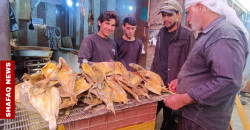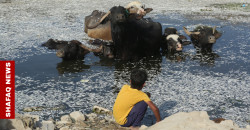Iraq's fishing communities grapple with drought and regional pressures, threatening traditional livelihoods
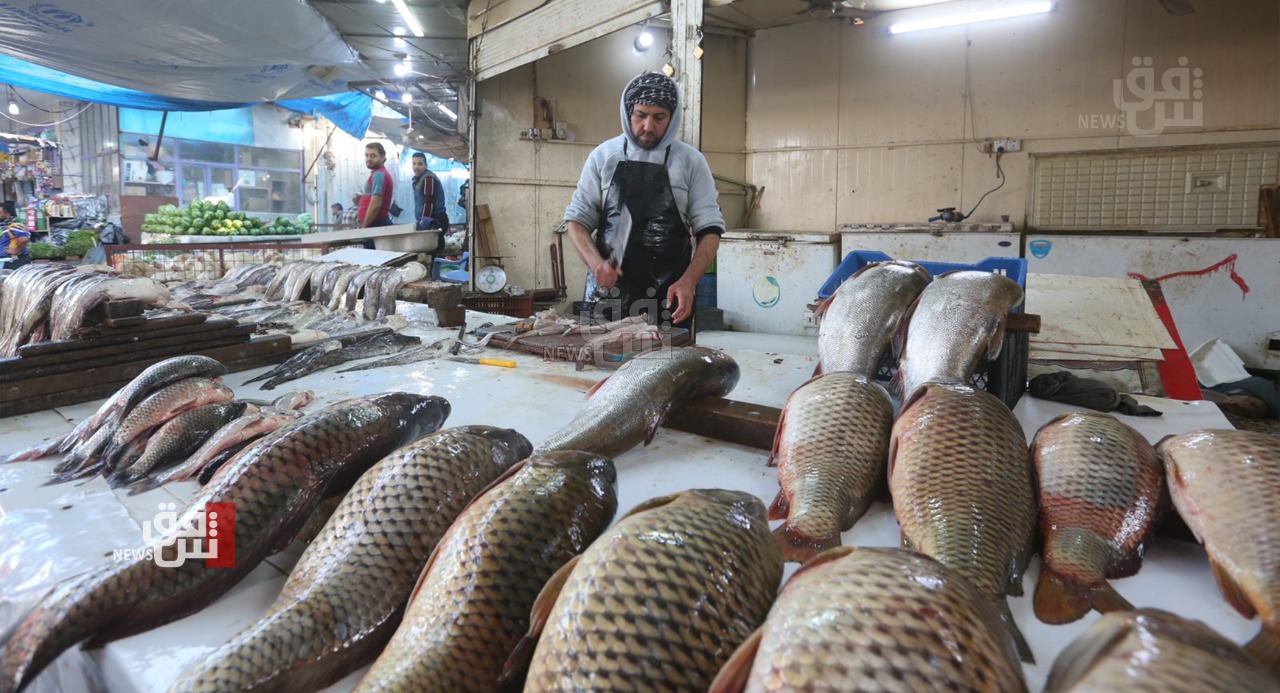
Shafaq News / Fishing in Iraq dates back to ancient times, deeply rooted in the country’s history and culture. The rivers, particularly the Tigris and Euphrates, historically provided fertile grounds for fish populations, supporting thriving fishing communities and economies.
Abbas Nadhim, a 43-year-old native of Diwaniyah governorate, inherited the ancestral fishing trade to support his family. However, the persistent drought across the country has posed challenges for him, similar to other fishermen and fish farm owners throughout Iraq.
Previously, Nadhim would catch various fish species like Khishni, Zuri, Shank, and occasionally Shebbut and Bunni. Unfortunately, due to the dwindling waters in some rivers and a significant decline in others, a substantial number of fish populations have perished.
In line with numerous Iraqi fishermen, Nadhim chose to move away from the fishing profession and embarked on a quest for new sources of income, as he informed Shafaq News agency.
Furthermore, the United Nations Assistance Mission for Iraq (UNAMI) estimates Iraq's annual losses from fishery resources to be around $400 million, emphasizing the urgent need for immediate and decisive action on climate-related issues.
Annual fish production of one million tons
Iraq houses licensed and unlicensed fish farms that collectively yielded over one million tons of fish annually between 2018, 2019, and 2020. Among these, licensed farms contributed 190,000 tons, while unlicensed ones accounted for 900,000 to one million tons, as stated by Iyad Al-Talibi, the head of the Iraqi Association for Fish Producers.
Al-Talibi highlighted that "water scarcity, the filling of unauthorized ponds, restricted water supplies to licensed farms, and the use of toxins and electricity for fishing have caused a decline in fish populations in freshwater plains and the Tigris and Euphrates rivers."
The threat of fish extinction
Al-Talibi clarified that "the release of fingerlings from government hatcheries is notably limited and often in larval form. Consequently, Iraqi fish species like baz, bunni, Gittan, and shaboot have begun to face extinction in the Tigris and Euphrates rivers. Although some quantities remain in marshes and Tharthar lake, they are also subjected to overfishing, coupled with an absence of small fish releases to compensate for these significant losses."
Employment impact
The head of the Iraqi Association for Fish Producers, noted, "The fish sector employs a vast segment, including feed factories, fishermen, transporters, sellers, and owners of grilling shops, totaling more than two million workers. However, at least half of them have been left unemployed, particularly freshwater fishermen in the Tigris, Euphrates, and other water bodies, due to the closure of unlicensed farms and the diminishing water supply to licensed ones."
He emphasized that "the most significant impact was felt by marsh and inland fishermen, prompting a large portion of them to abandon their profession due to the scarcity of fish, needed for sustenance."
Al-Talibi urged the Ministries of Water Resources and Agriculture to "implement closed systems and initiate a substantial project for saltwater fish like supereme, zubaidi, and others residing in saltwater bodies such as the sea, the Arabian Gulf, Al-Faw, or areas with saltwater basins."
He stressed, "This is the only viable alternative to meet market demands, as there is no better option than the sea, following the example of neighboring countries like Kuwait, Saudi Arabia, and Iran, which have successfully used this system and fish species to meet their market needs."
Impact of destructive imports
Al-Talibi cautioned against the detrimental effects of resorting to imports, warning that "relying on imports damages and undermines the existing fish projects' infrastructure, especially floating cages and mud basins," highlighting the need to avoid resorting to them altogether.
He explained that "current fish prices have dropped to 5,000 Iraqi dinars per kilogram due to breeders' concerns about their fish contracting the herpes virus, resulting in a surplus of fish in the market. However, by the month's end, the supply will decrease, leading to a price rise to 8,000 Iraqi dinars per kilogram."
Al-Talibi stressed that "fishermen and fish breeders are against price hikes to prevent resorting to imports. Otherwise, the national product will suffer, as there is no safeguard for local products."
Multiple strategic targeting
Tha’er Mukheef, a member of the Parliamentary Agriculture, Water, and Marshes Committee, highlighted that "Iraq is strategically targeted on security, military, and economic fronts, with neighboring, regional, and even distant countries aspiring for Iraq to remain an importer, ensuring continued consumption of their goods."
Mukheef observed, "The depletion of fish wealth predated the water scarcity issue. Many fish perished in rivers and cages, indicating a systematic effort to eradicate the fish wealth by neighboring countries exporting to Iraq."
He concluded, "The convergence of natural conditions, climate changes, and water cuts by neighboring countries like Turkey and Iran has forcibly deprived Iraq of water, resulting in significant losses, including the depletion of fish wealth. Despite existing water agreements among coastal countries, there seems to be a lack of adherence to these international regulations."
